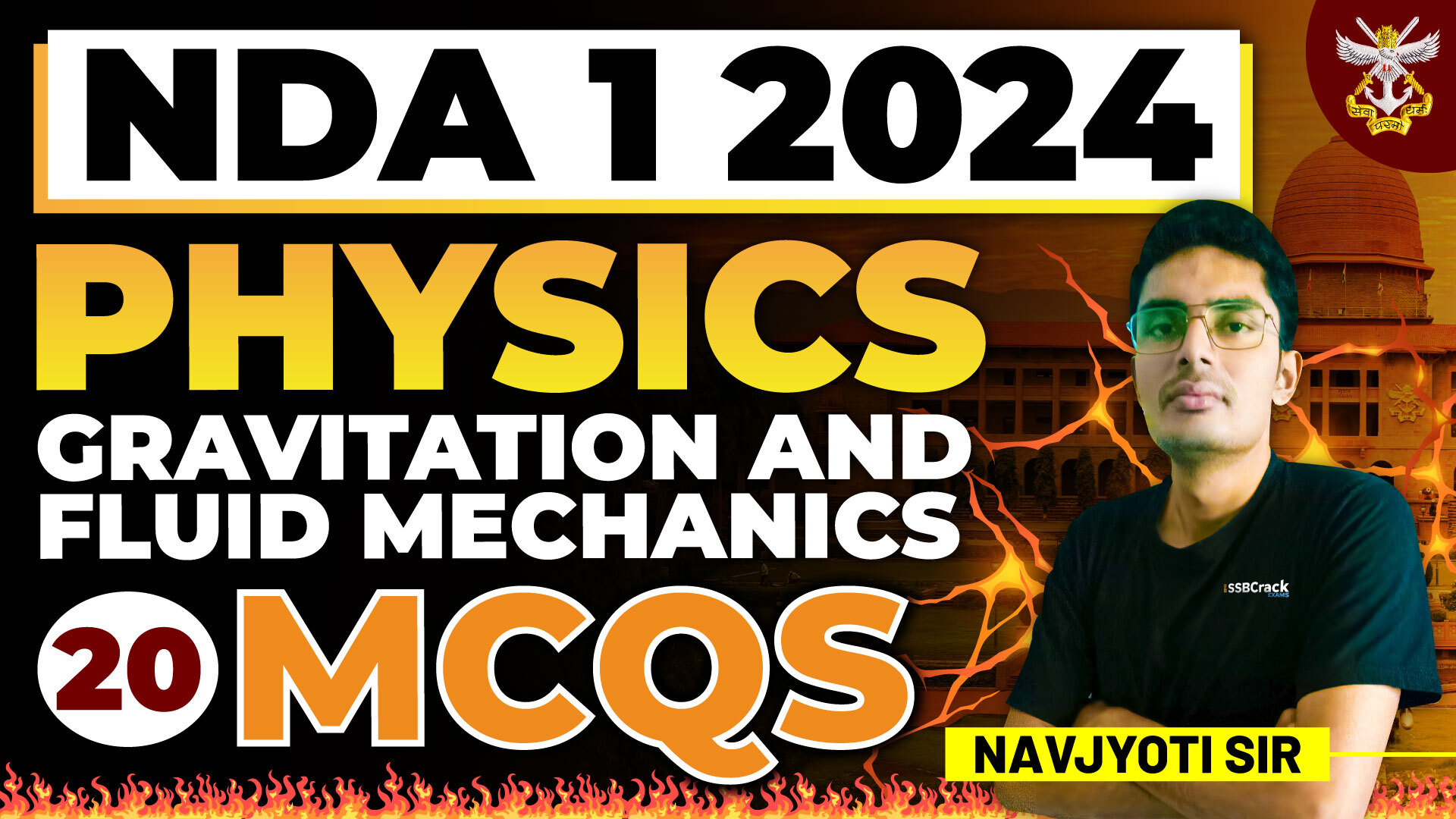Welcome to the NDA 1 2024 Physics Lecture focusing on Gravitation and Fluid Mechanics through the lens of Multiple Choice Questions (MCQs). In this session, we’ll reinforce our understanding of important concepts in these areas, including the Universal Law of Gravitation, acceleration due to gravity, Kepler’s Planetary laws, Pressure and Buoyancy, and Archimedes Principle. By solving a series of 20 MCQs, we’ll delve into these topics and sharpen our problem-solving skills in preparation for the NDA exam.
Understanding Gravitation
Gravitation is a fundamental force that governs the motion of celestial bodies and objects on Earth. It is described by Sir Isaac Newton’s Universal Law of Gravitation, which states that every mass attracts every other mass with a force that is directly proportional to the product of their masses and inversely proportional to the square of the distance between their centers. This law plays a crucial role in understanding the motion of planets, moons, and satellites.
Exploring Fluid Mechanics
Fluid mechanics deals with the behavior of fluids (liquids and gases) and their interactions with solid objects. It encompasses concepts such as pressure, buoyancy, and fluid flow.
Gravitation and Fluid Mechanics Important MCQs
Q) In the relation F = GMm /d2 , the quantity G is
A.Depends on the value of g at the place of observation
B.Is used only when the Earth is one of the two masses
C.Is greatest at the surface of Earth
D.Is universally constant
Ans : D
Q) Which one of the following statements about gravitational Force is NOT correct ?
A. It is experienced by all bodies in the universe
B. It is a dominant force between celestial bodies
C. It is a negligible force for atoms
D. It is the same for all pairs of bodies in our universe
Ans : D
Q) A liquid is kept in a glass beaker. Which one of the following statements is correct regarding the pressure exerted by the liquid column at the base of the beaker ?
A. The pressure depends on the area of the base of the beaker.
B. The pressure depends on the height of the liquid column.
C. The pressure does not depend on the density of the liquid.
D. The pressure neither depends on the area of the base of the beaker nor the height of liquid column.
Ans : B
Q) All objects experience buoyancy when immersed in a fluid. Buoyancy is
A.A Downward Force
B.A Downward Pressure
C. An Upward Force
D. An Upward Pressure
Ans : C
Q) Suppose there are two planets, 1 and 2, having the same density but their radii are R1 and R2 respectively, where R1 > R2. The accelerations due to gravity on the surface of these planets are related as
A. g1 > g2
B. g1 < g2
C. g1 = g2
D. Can’t say anything
Ans : A
For an explanation of the above questions and other related MCQs, please refer to the YouTube video above.







